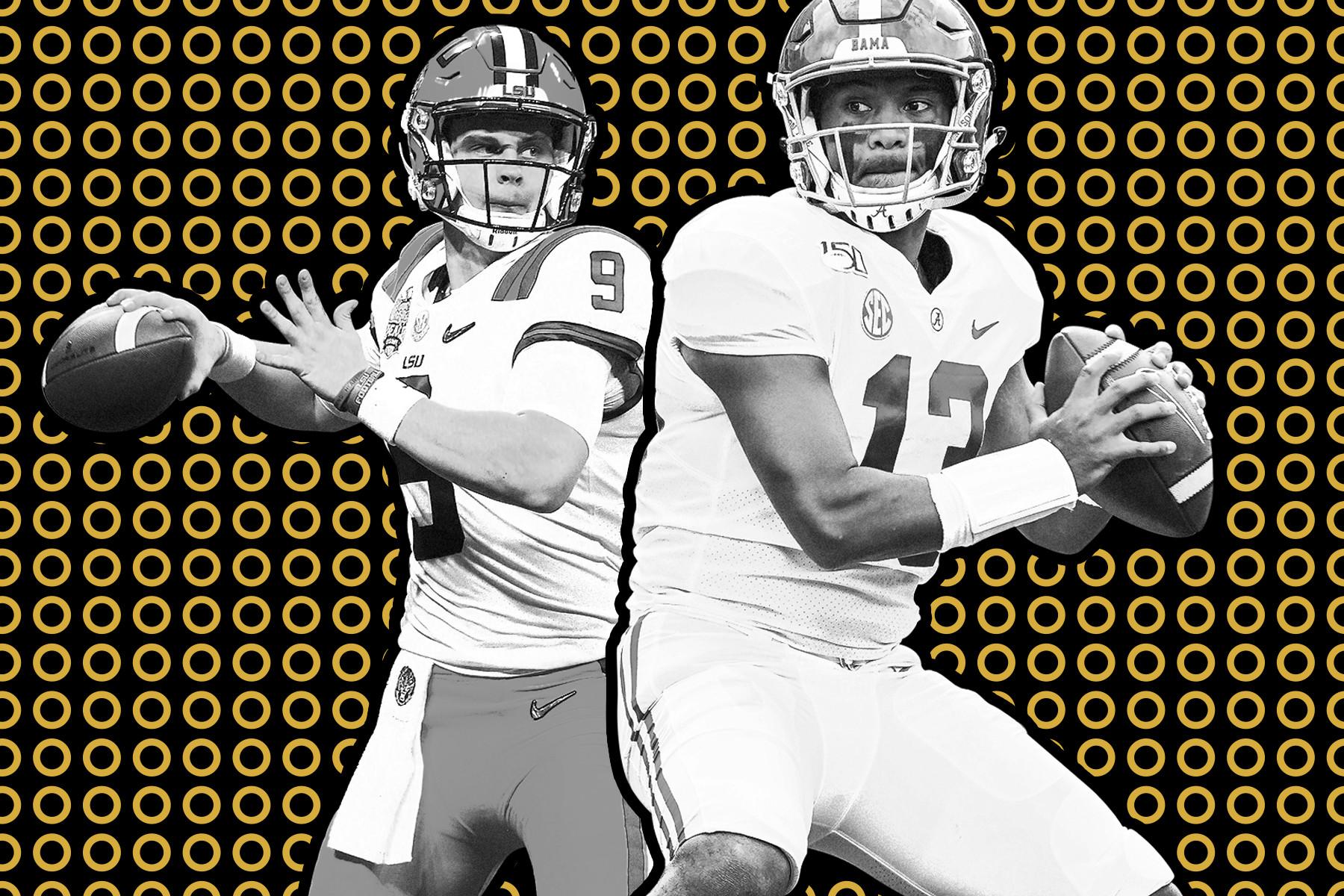Welcome to The Ringer’s 21st-Century NFL Draft Retrospective, where we’re looking back at the past 20 years of drafts to find the biggest hits, misses, and league trends since 2000. Who have been the best selections? What lessons can be learned from the top picks that never worked out? What does the track record of no. 1 picks teach us about team building? And how has the league changed over the last two decades?
Who are the best NFL draft picks of the past 20 years?
It seems like a simple enough question, right? We have a good understanding of who the best football players have been over the past two decades. That’s why it’s no surprise that the NFL’s 2010s all-decade team features familiar names like Julio Jones, Von Miller, and Joe Thomas. There’s a difference, though, between identifying the best players and the best picks.
The NFL draft is all about value. Getting production from a pick near the top of the draft is less valuable than getting it from a pick near the bottom. Players like Jones, Miller, and Thomas have dominated the league for years, but all three were taken in the top 10 of their respective drafts. A 90-catch, 1,200-yard season from Jones is different than a 90-catch, 1,200-yard season from a fifth-round pick like Stefon Diggs. Parsing that difference is complicated, but I’ve got some extra time on my hands these days, so what the hell.
With 20 years’ worth of 21st-century drafts in the books and this year’s installment on the horizon, now is a perfect time to rank the most valuable draft picks since 2000. There’s no precise formula to build that list, so we took several different variables into account. The most important are as follows:
- The draft value chart created by Chase Stuart in 2012 that establishes the value of each pick. Stuart’s model is an analytics-friendly update on the Jimmy Johnson chart that governed draft trades for years, and provides a more accurate breakdown of how valuable each draft slot is. By assigning each pick a given approximate value (AV), we can assess the gap in value between picks. Using the wide receiver example from before, the draft slot for Jones (no. 6 in 2011) has a listed value of 23.2 AV. The draft slot for Diggs (no. 146 in 2015) has a listed value of 2.9 AV. The difference in those figures comes out to 20.3 AV, which is roughly equivalent to the value of the no. 9 pick. So the question becomes: Would you rather have Jones or Diggs and the no. 9 pick in the draft? See? This isn’t so simple.
- Undrafted free agents aren’t included. For our purposes here, we decided to go with drafted players only.
- A player’s production during those seasons with his drafting team. Factoring in only these seasons is why someone like Drew Brees, who piled up most of his numbers after switching teams, didn’t make the cut. He’s had a legendary career, but didn’t return legendary value during his short stint with the Chargers.
- Positional value. Finding a starting quarterback in the third round means more to a franchise than finding a starting running back in that same slot. As a result, the list favors quarterbacks. But since many great QBs are drafted in the top five, well … you’ll see.
- The importance of being able to retain a player before he hits free agency. We considered limiting this exercise to just a player’s first five NFL seasons to match the length of many rookie contracts, but being able to re-sign a superstar before he hits free agency is a huge benefit of drafting well. Tom Brady wouldn’t have been on the Patriots for 20 years if New England hadn’t drafted him. So the entire scope of a player’s career with his drafting team was taken into consideration, which inherently tipped the scales toward those who’ve stuck with a single franchise. This is also why the first version of Stuart’s draft chart—which isn’t limited to a player’s first five seasons—was used here.
- The trade compensation that a draft pick brought back if the player selected in that spot was later traded. Khalil Mack’s value to the Raiders, for instance, wasn’t limited to his on-field production during his four seasons in Oakland. He also netted the franchise significant draft capital when he was traded to the Bears before the 2018 season. That matters.
The truth is that there’s no foolproof way to calculate the difference in value between draft slots. These parameters are meant to be a guide for determining how a late-round pick’s production compares to, say, someone taken in the top 10. Still, they create a framework through which to rank (and debate) the 32 most valuable draft picks of the century. Finally, for all of the effort put into making this scientific, the list was inevitably influenced by my personal views on player and positional value. Offensive linemen are higher on my list than they might be on others’. Running backs are lower. (In fact, there are none.) Opinions—mine and yours—are an essential part of this debate. That’s what makes it fun.
Before we get to the top 32, a few honorable mentions:
Jimmy Graham (2010): If I had 33 slots, Graham would have made it. The draft haul of a first-round pick and Max Unger worked in Graham’s favor, but in the end, he just didn’t have enough productive seasons in New Orleans.
Adrian Wilson (2001): The former third-round pick was a physical marvel who spent 12 seasons with the Cardinals, but the peak of his career wasn’t quite high enough.
Justin Houston (2011): Houston was arguably the scariest pass rusher in football during his prime, but injuries short-circuited too many seasons for him to make the cut.
Terron Armstead (2013): Armstead is the rare elite tackle who was found outside the third round, but nagging injuries were enough to hold him back here.
Danielle Hunter (2015): The Vikings’ former third-round pick is a success story for player development. If he has a couple of more seasons like the sack-filled campaigns he’s put together in recent years, he’ll deserve to be included in this group.
Chad Johnson (2001): Ochocinco’s career numbers are even better than you remember, but his draft slot (36th overall) was just a bit too high to get him in.
Calais Campbell (2008) and Anquan Boldin (2003): If Campbell and Boldin had put up their late-career numbers in Arizona (and not Jacksonville and San Francisco, respectively), they probably would have made the cut.
Top-five QBs (Matt Ryan, Philip Rivers, Matthew Stafford, Eli Manning, etc.): Finding a good quarterback is such a disproportionate part of a team’s success that you could probably make an argument that guys like Rivers and Ryan are more valuable than several players on this list, even given their draft status. But I had to cut it off somewhere, so you won’t find any top-five picks here.
32. Lamar Jackson
Year: 2018
Pick: Round 1, no. 32 overall
Pick AV: 17.3
Games started with drafting team: 22
AV with drafting team: 33
All-Pro selections: 1
OK, let me stop you right there. I know what you’re going to say: He’s played 1.5 seasons! But the strength of Jackson’s MVP campaign—and a reasonable projection of how he’ll perform in the future—is enough to sneak him in. Since the 2007 Patriots ushered in the modern passing game, only two other MVPs have been drafted outside of the top 10. And those guys are ranked much higher on this list. Teams just don’t find quarterbacks like Lamar Jackson at the end of the first round. That range is typically reserved for the Andy Daltons, Derek Carrs, and Teddy Bridgewaters—solid but unspectacular QBs who can guide a team but rarely carry one. Even if Jackson is merely an above-average quarterback for the rest of his career, he’ll have dramatically outperformed his draft slot.
31. Julian Edelman
Year: 2009
Pick: Round 7, no. 232 overall
Pick AV: 0.0
Games started with drafting team: 84
AV with drafting team: 69
All-Pro selections: 0
It can be difficult to find safe, rational ground in the Julian Edelman debate. The Edelman truthers—who believe he should be in the Hall of Fame—need to go for a walk and clear their heads. Edelman’s playoff contributions are undeniably impressive. Only Jerry Rice has more postseason receptions and receiving yards. But Edelman has also started 13 playoff games since becoming a full-time member of the Pats offense in 2013. He’s played nearly a full season of extra games—which says more about the Patriots’ dominance than it does Edelman’s career. He’s averaged 75.9 receiving yards per game in the playoffs. That doesn’t even rank in the top 50 all time.
Edelman’s regular-season production has been underwhelming. He’s averaged 69.8 receiving yards per game since 2013. That ranks 15th over that span. But when you take his draft status into account, the conversation shifts. Compare Edelman’s career to someone like T.Y. Hilton, who was left off this list. Hilton was drafted 92nd overall in 2012. As a throwaway pick in the seventh round, Edelman was essentially free. I’d say that Edelman’s body of work plus a third-round pick is more valuable than Hilton’s career on its own. Edelman may not deserve a gold jacket, but what he’s accomplished as a late-round flier is still incredible.
30. J.J. Watt
Year: 2011
Pick: Round 1, no. 11 overall
Pick AV: 26.2
Games started with drafting team: 112
AV with drafting team: 112
All-Pro selections: 6
Watt’s ranking proves just how difficult it is for high picks to crack this list. At age 31, Watt is already one of the most decorated players in NFL history. Only two players have ever won three Defensive Player of the Year awards: Watt and Lawrence Taylor. That’s pretty good company. He’d be a Hall of Famer if he never played another down. But even with that résumé, Watt’s draft standing still threatened to keep him out of the top 32. He’s the highest-drafted nonquarterback in this group—but the gap in value between a top-five pick and a selection just outside the top 10 (which comes out to a fourth-round pick) was enough to seal the deal.
29. Reggie Wayne
Year: 2001
Pick: Round 1, no. 30 overall
Pick AV: 17.9
Games started with drafting team: 197
AV with drafting team: 155
All-Pro selections: 3
The Peyton Manning–era Colts were such a relentless machine that it’s easy to forget how good Reggie Wayne really was. During a 10-year stretch from 2003 to 2012, Wayne played in all 160 games and averaged 1,200 receiving yards, 89.2 receptions, and 7.4 touchdowns per season. Among receivers drafted 30th or later since 2000, he ranks in the top three in receptions, yards, and touchdowns. The gap in draft value between Wayne at no. 30 and Julio Jones at no. 6 is equivalent to the 54th pick in the draft. Even in a crowded era for receivers, he deserves to be on this list.
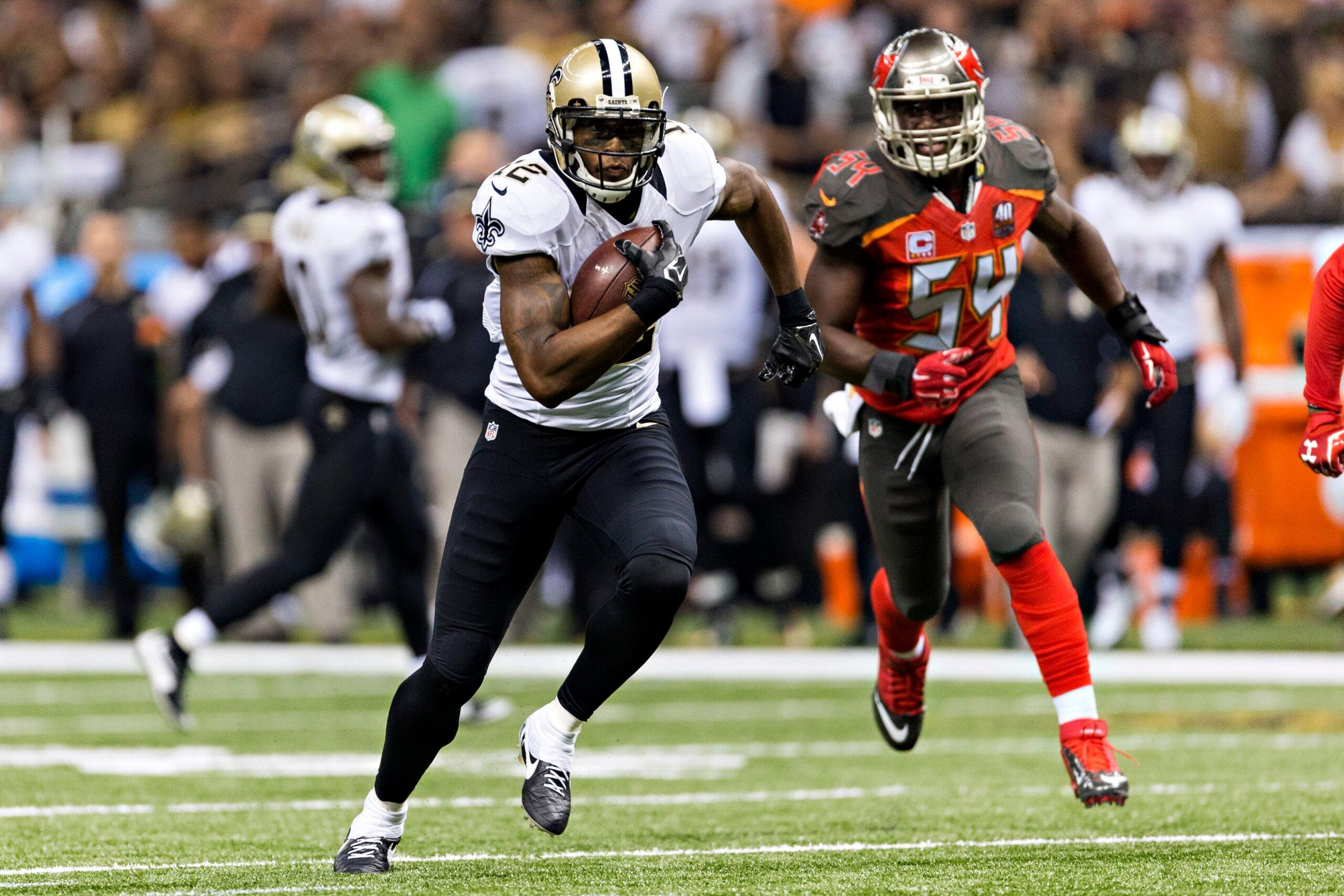
28. Marques Colston
Year: 2006
Pick: Round 7, no. 252 overall
Pick AV: 0.0
Games started with drafting team: 106
AV with drafting team: 90
All-Pro selections: 0
For many, Marques Colston’s lasting legacy will be a mislabeled position status that allowed fantasy players to use him as a TE in 2006 and ride that loophole all the way to a championship. That may sound like a joke, but the confusion surrounding Colston as a rookie helps explain his impressive career. As a positional tweener coming out of the now-defunct Hofstra football program, Colston was a complete afterthought when the Saints took him three spots before Mr. Irrelevant in 2006. In his rookie year, though, Colston burst onto the scene as an oversized slot receiver and helped resurrect football in New Orleans. Colston ultimately compiled six seasons with at least 1,000 receiving yards in his career. His regular-season production is more impressive than Juilan Edelman’s, and he was picked 20 spots later.
27. Josh Sitton
Year: 2008
Pick: Round 4, no. 135 overall
Pick AV: 4.3
Games started with drafting team: 137
AV with drafting team: 86
All-Pro selections: 3
To no one’s surprise, I had Sitton higher on this list before a friend told me to move him down. It’s important to surround yourself with people who will call out your bias toward offensive guards. But even if I may overrate Sitton a bit, no one else does. He was the rock of an offensive line that helped keep Aaron Rodgers upright en route to two MVP awards in four years. Sitton was arguably the best pass-blocking guard of his generation, and the Packers got him at a pick often reserved for backup-QB types like Ricky Stanzi, Tom Savage, and Josh Dobbs.
26. Jason Kelce
Year: 2011
Pick: Round 6, no. 191 overall
Pick AV: 1.4
Games started with drafting team: 126
AV with drafting team: 79
All-Pro selections: 3
Kelce’s NFL career is nothing short of miraculous. At the 2011 combine, Kelce weighed 280 pounds. That ranks in the first percentile for all interior offensive linemen since 2000. Only two IOL were lighter over that span, and one of them was in the Air Force—which doesn’t count. Over time, Kelce learned to use that frame to his advantage. His movement skills and savvy as a run blocker form the backbone of the Eagles’ rushing offense. Kelce has been the league’s best center for the past few seasons, and the guy was drafted one spot ahead of a punter. Positional value is the only factor preventing Kelce from being higher on this list. If he were a wide receiver—or even a tackle—he’d shoot up significantly.
25. Aaron Donald
Year: 2014
Pick: Round 1, no. 13 overall
Pick AV: 25
Games started with drafting team: 90
AV with drafting team: 90
All-Pro selections: 5
The Rams found the best player in the entire NFL with the 13th overall pick. Hell, even the Rams passed on Donald once in that draft, when they used the no. 2 pick on offensive tackle Greg Robinson. The top of the board in 2014 was loaded with superstars like Khalil Mack, Odell Beckham Jr., and Mike Evans, but none of them have made an impact quite like Donald. He’s been the top defensive player in football for (at least) three years running, and he’s showing no signs of slowing down. The difference in draft value between Donald at no. 13 and Mack at no. 5 is equivalent to the 105th overall pick. That is absurd.
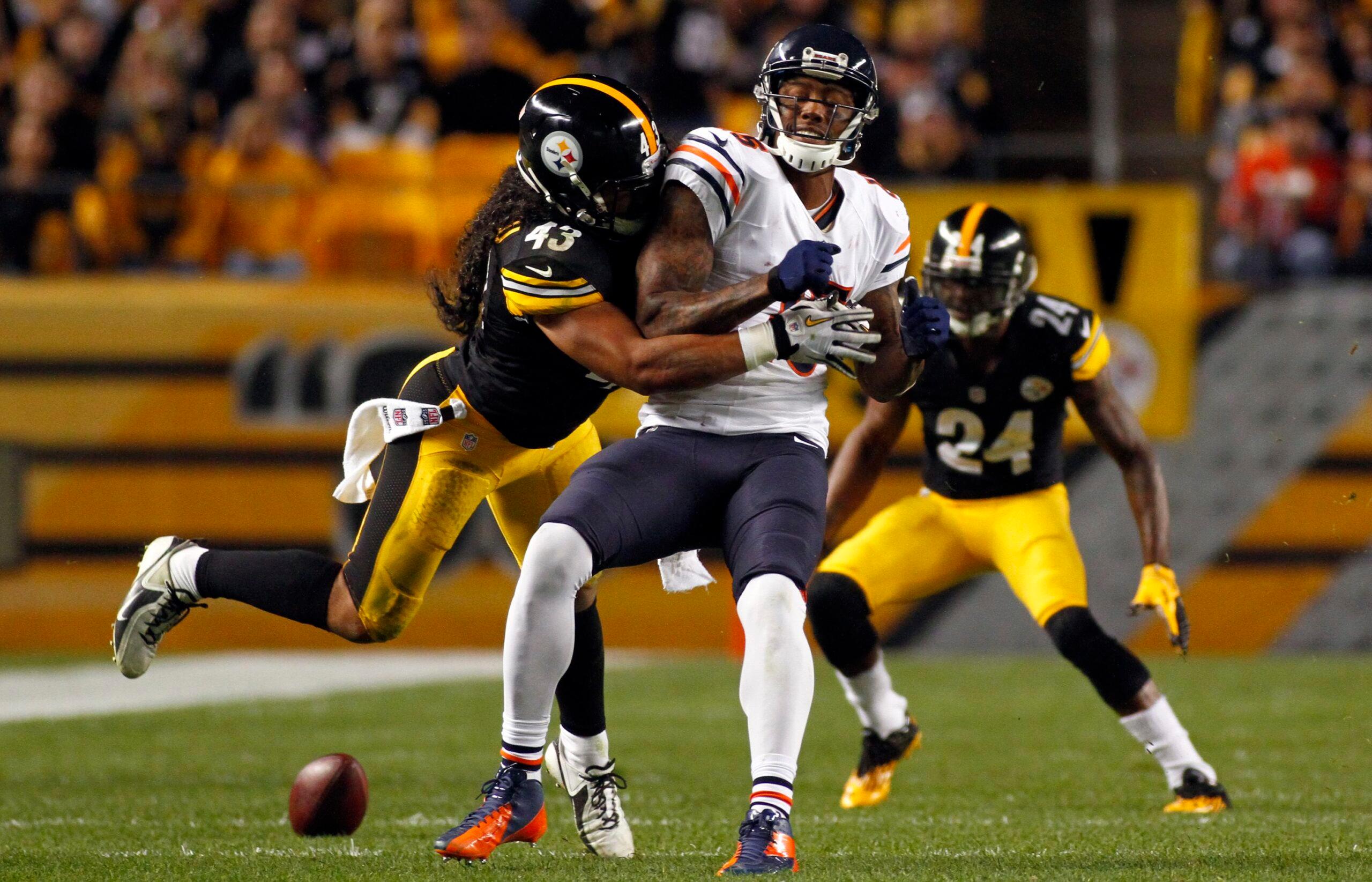
24. Troy Polamalu
Year: 2003
Pick: Round 1, no. 16 overall
Pick AV: 23.3
Games started with drafting team: 142
AV with drafting team: 115
All-Pro selections: 6
Teams usually struggle to find defenders like Polamalu outside the top 15. He was the most important player on the league’s best defense for years, terrorizing opponents as both a roving menace in the secondary and an intimidating presence near the line of scrimmage. The gap in value between the 10th overall pick and the 16th equates to a high fifth-round pick. That may not seem like much, but considering Polamalu was arguably the best defensive player in football for multiple seasons, that extra bit of capital is enough to elevate him above most high first-rounders.
23. Kyle Williams
Year: 2006
Pick: Round 5, no. 134 overall
Pick AV: 4.4
Games started with drafting team: 178
AV with drafting team: 102
All-Pro selections: 1
Kyle Williams is one of those guys I feel obligated to mention whenever possible, just to make sure his career doesn’t get lost to history. Williams fell through the draft cracks for the same reason most defensive tackles do. At 6-foot-1 and 298 pounds, he was undersized for a traditional 3-technique, but his college numbers (4.5-plus sacks in each of his final three seasons at LSU) showed he had plenty of upside as a one-gap tackle. Williams played 13 seasons for Bills and tallied at least five sacks in six of them. That’s tremendous production—and staying power—for a guy Buffalo drafted 16 spots after the Patriots took Stephen Gostkowski.
22. Andrew Whitworth
Year: 2006
Pick: Round 2, no. 55 overall
Pick AV: 12.2
Games started with drafting team: 164
AV with drafting team: 104
All-Pro selections: 3
The checkered history of second-round quarterbacks is well established at this point, but second-round tackles haven’t fared much better. Whitworth has put together the best career of any tackle taken in the second round or later since 2000—and it’s not even close. The only tackles from Whitworth’s generation who’ve had comparable careers are guys like Joe Thomas, Joe Staley, and Duane Brown—all of whom were first-round picks. For nearly a decade, Whitworth manned the left side of the Bengals line, while occasionally pulling spot duty at guard when injuries struck. Finding a player like that in the back half of the second round is unheard of. (Fun note: Whitworth and Wiliams played together at LSU and remain extremely close friends.)
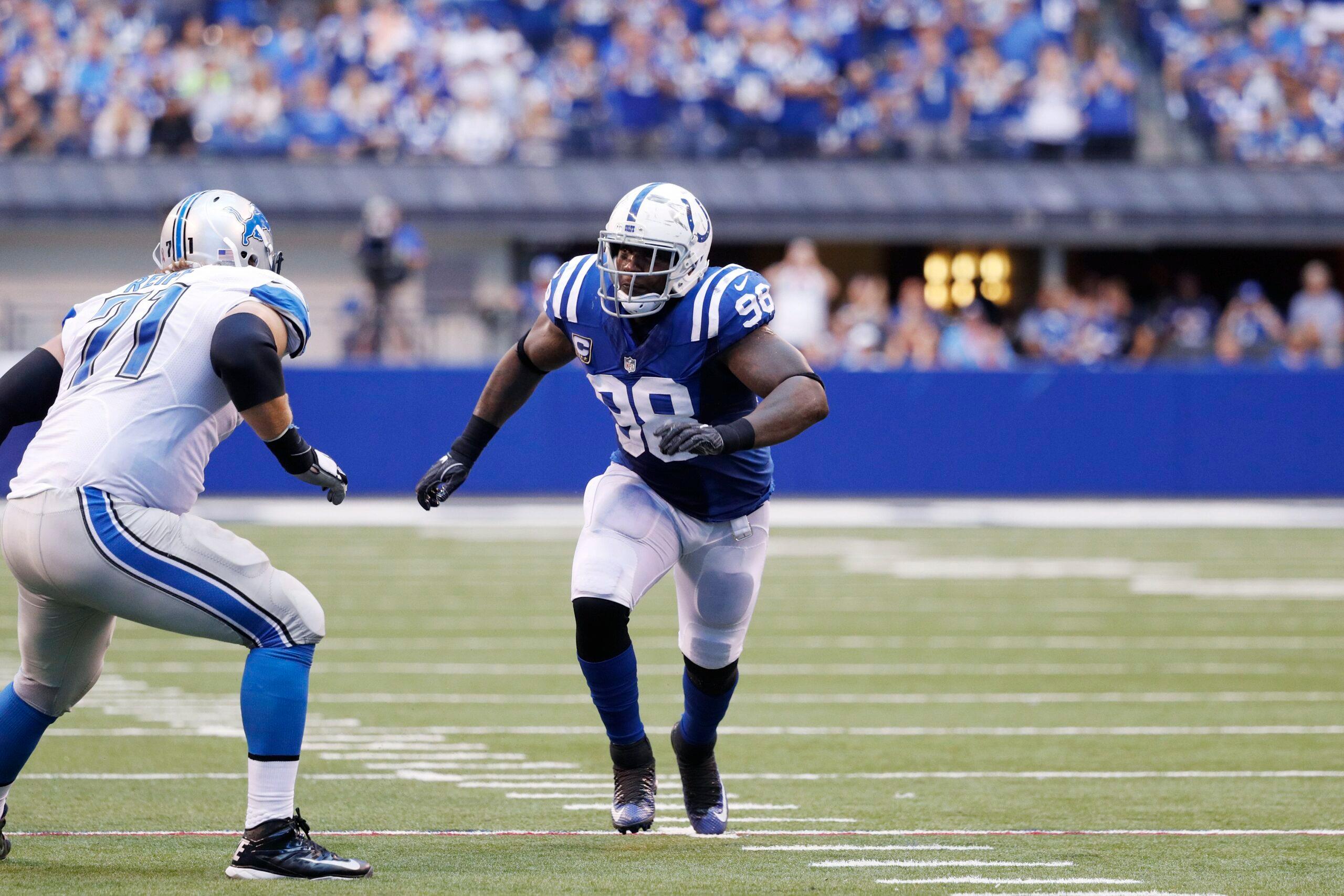
21. Robert Mathis
Year: 2003
Pick: Round 5, no. 138 overall
Pick AV: 4.1
Games started with drafting team: 121
AV with drafting team: 87
All-Pro selections: 1
He was often overshadowed by pass-rushing partner Dwight Freeney during their time with the Colts, but Mathis was a star in his own right. From 2003 through 2013, he averaged 10 sacks and 4.5 forced fumbles per season. Among players drafted in the fifth round or later, only Hall of Famers Kevin Greene and Richard Dent have more sacks. And only six players—of any draft status—have more sacks since 2000: Freeney, four other first-round picks, and the guy just ahead of Mathis on this list.
20. Jared Allen
Year: 2004
Pick: Round 4, no. 126 overall
Pick AV: 4.9
Games started with drafting team: 55
AV with drafting team: 40
All-Pro selections: 4
Allen is unlike any other player in this group. He was a fourth-round steal for the Chiefs in 2004, racking up 43 sacks and 56 tackles for loss over his first four seasons. But instead of locking up Allen long term, Kansas City dealt him to the Vikings in 2008 for a first-round pick and two third-rounders. In all, those selections amounted to 40.9 AV in draft capital—better than a first overall pick. That haul, combined with Allen’s production in Kansas City, was more than enough to secure his status on this list.
19. Jahri Evans
Year: 2006
Pick: Round 4, no. 108 overall
Pick AV: 6.2
Games started with drafting team: 169
AV with drafting team: 135
All-Pro selections: 5
At least one person out there just went, “Wait, who?” And that’s understandable. Evans was never a household name, but the former Saints guard was among the most consistent players of his era. From 2006 to 2016, Evans started 169 of a possible 176 games, and his presence on the interior played a huge role in the Saints’ offensive dominance. For a short quarterback like Drew Brees, solid pass protection up the middle is vital. Having Evans up front to stonewall defensive tackles and provide Brees with clear throwing windows allowed the passing game to soar. Evans was voted first- or second-team All Pro five years in a row, and he did it as a former fourth-round pick.
18. Marshal Yanda
Year: 2007
Pick: Round 3, no. 86 overall
Pick AV: 8.1
Games started with drafting team: 166
AV with drafting team: 112
All-Pro selections: 7
Jahri Evans would have been considered the best guard of his generation if this guy never existed. Yanda announced his retirement last month, but the Ravens great had plenty left in the tank. He looked no less dominant last year at age 35 than when he made his first Pro Bowl in 2011. Yanda set the standard for interior offensive linemen. It’s tough for anyone to rule their position like Yanda did over the last decade, and for a guy drafted late in the third round, it’s almost impossible. Looking at the historic 2007 draft class, the pick AV difference between Yanda (86th overall) and future Hall of Famer Joe Thomas (third overall) was equivalent to the no. 11 pick. I don’t know about you, but I’m taking the Yanda side of that deal.
17. Ed Reed
Year: 2002
Pick: Round 1, no. 24 overall
Pick AV: 19.9
Games started with drafting team: 159
AV with drafting team: 131
All-Pro selections: 8
Every time I went through this list, Reed seemed to move up a spot or two. Would I rather have Reed and the 106th pick, or J.J. Watt? Reed and 106. Would I rather have Jahri Evans and the 59th pick, or Reed? Still Reed. Even as the 24th overall pick in the 2002 draft, Reed returned an incredible amount of value during his tenure with the Ravens. He affected the game unlike any modern safety before or since, and he did it for a ridiculously long time. Reed was 25 when he made his first All-Pro team. He was 33 when he made his last. For a position that forces a player to cover ground like safety does, that’s hard to fathom. I’m still kind of bummed we never got to see Reed play at the height of the league’s passing boom. It doesn’t take much to imagine him picking off a dozen passes during a single season—and returning a few of them for touchdowns. I should also note that while “being the coolest player of your generation” isn’t part of the official rubric, it’s impossible to ignore in Reed’s case. This look alone probably earned him a couple spots.
16. Lance Briggs
Year: 2003
Pick: Round 3, no. 68 overall
Pick AV: 10.2
Games started with drafting team: 159
AV with drafting team: 123
All-Pro selections: 3
Go ahead. Call me a homer. Your boos only make me stronger. Bears fans have a special affinity for Briggs, but you don’t need to be from Chicago to appreciate his career. The value of a tackling machine like Briggs has lessened as football has gone to the air, but in his era, he was a pillar of a Chicago defense that finished in the top 10 in DVOA seven times in nine seasons. From 2003 to 2012 (the first decade of his career), Briggs tallied 85 tackles for loss—second only to teammate Brian Urlacher among off-ball linebackers during that span. The difference in draft value between Urlacher (the ninth overall pick in 2000) and Briggs is equal to the 32nd overall pick in the draft.
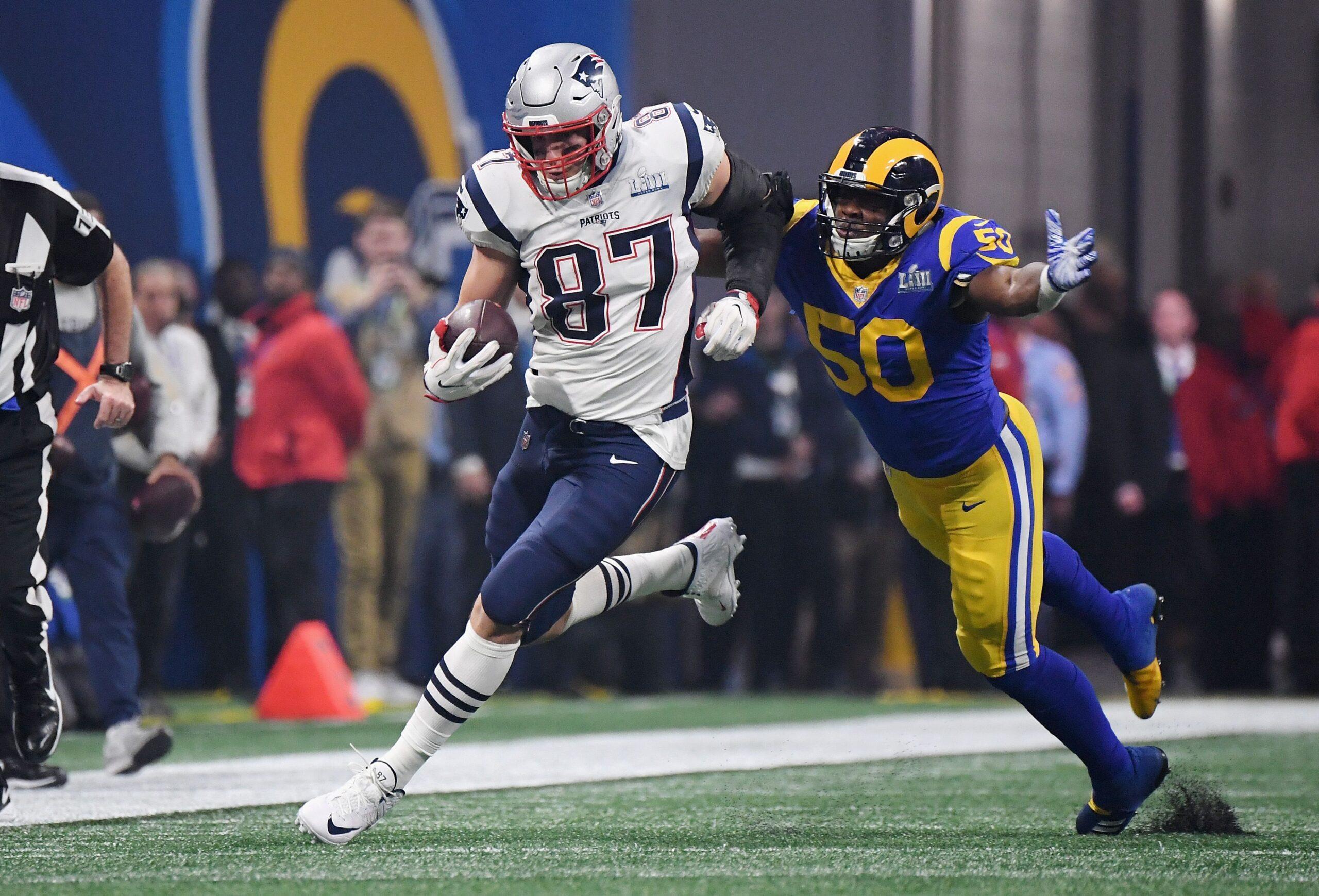
15. Rob Gronkowski
Year: 2010
Pick: Round 2, no. 42 overall
Pick AV: 14.7
Games started with drafting team: 100
AV with drafting team: 82
All-Pro selections: 4
It’s difficult to put Gronk’s career in proper perspective. Injuries limited him to only seven seasons’ worth of games, but when he was on the field, Gronkowski was arguably the best tight end to ever do it. That unprecedented greatness at a single position—as the 42nd overall pick, no less—is the reason he ranks so high on this list. The value gap between Gronk at no. 42 and Tony Gonzalez at no. 13 comes out to the 67th overall pick. New England found the most gifted tight end in history two picks after the Dolphins drafted Koa Misi. All-time great players just don’t come from that range of the draft.
14. Bobby Wagner
Year: 2012
Pick: Round 2, no. 47 overall
Pick AV: 13.7
Games started with drafting team: 118
AV with drafting team: 112
All-Pro selections: 6
This might seem a little high for Wagner—considering that he and Gronk were taken at virtually the same spot in the draft—but let’s take a step back and look at what the Seahawks linebacker has done to this point. Wagner has been first- or second-team All Pro in each of the past six seasons. And none of those were undeserved nods based solely on pedigree. Wagner has been one of the top-two off-ball linebackers in the NFL for the majority of his career. That position has been marginalized a bit in recent years, but Wagner’s abilities in coverage allow him to transcend positional value. He’s been one of the most impactful defensive players in football for years. And he’s not going anywhere. Wagner is still only 29. If he compiles four to five more comparable seasons to the ones he’s had recently, he could finish his career with seven (or more) first-team All Pro selections. The only defensive player since 1970 to be drafted in the second round or later and reach that mark is Mike Singletary. Wagner is quietly putting together one of the most decorated careers we’ve ever seen for a defensive player, and he’s done it as a second-round pick.
13. Travis Kelce
Year: 2013
Pick: Round 3, no. 63 overall
Pick AV: 10.9
Games started with drafting team: 89
AV with drafting team: 66
All-Pro selections: 4
Four tight ends were taken before Travis Kelce in the 2013 draft. Think about that for a second. One of them was Zach Ertz, who’s had an excellent career in his own right. But still. Kelce was taken 63rd; Ertz was taken 35th. The difference in draft capital between those spots is a late fourth-round pick. Most people would take the Kelce side of that deal, even without the sweetener. Only three tight ends in NFL history have had four seasons of at least 80 catches and 1,000 yards: Kelce, Tony Gonzalez, and a guy we’ll get to shortly. Those numbers should be adjusted for era, but even taking volume into account, Kelce is the no. 1 target on one of the highest-powered passing offenses the league has ever seen. If he stays on his current trajectory, he’s not just going to set receiving records for tight ends. He’s going to obliterate them.
12. Geno Atkins
Year: 2010
Pick: Round 4, no. 120 overall
Pick AV: 5.3
Games started with drafting team: 134
AV with drafting team: 104
All-Pro selections: 3
I’ve always had a soft spot for Geno Atkins. The soft-spoken Bengals star paved the way for smaller defensive tackles like Aaron Donald and Grady Jarrett to take over the NFL. Pound for pound, Atkins always seemed like one of the most powerful guys in the league. His 75.5 sacks puts him first among all interior defensive linemen since 2000. Over the past decade, he’s gotten after the quarterback and affected games more than any defensive tackle in football not named Aaron Donald. And the Bengals waited until the back half of the fourth round to scoop him up.
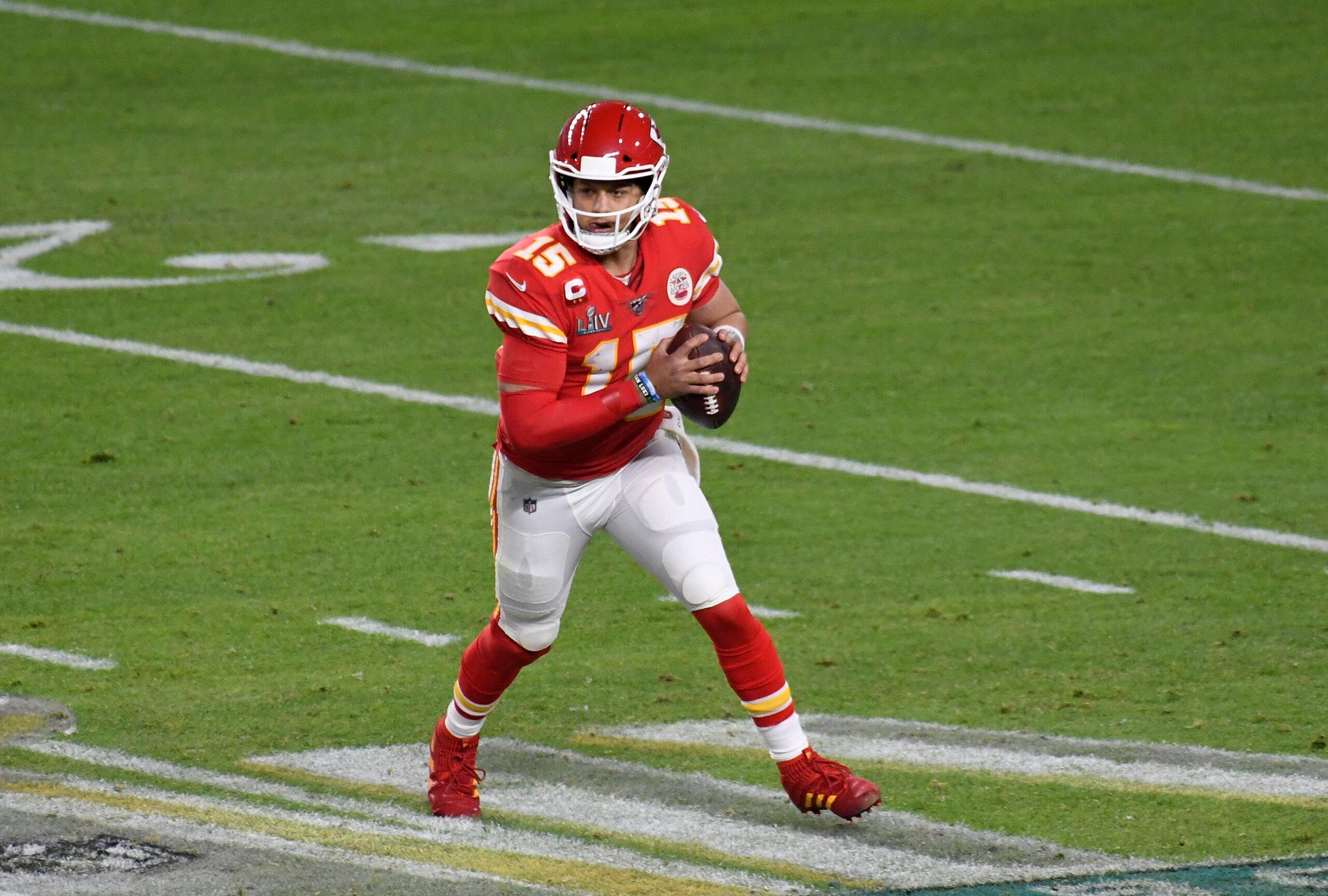
11. Patrick Mahomes
Year: 2017
Pick: Round 1, no. 10 overall
Pick AV: 26.9
Games started with drafting team: 31
AV with drafting team: 40
All-Pro selections: 1
Finding the right spot for Mahomes was the most challenging part of this entire endeavor. You have to balance a small sample size, a relatively high draft position, and a probable future as an all-time great quarterback. If we ran a million simulations of Mahomes’s career, I’d guess a majority of them end with him in Canton. But no matter how likely that outcome is, it’s still a projection. Even considering his unlimited potential, it’s hard to rank Mahomes ahead of guys who’ve been stars for a decade or more. But if Mahomes does follow the path we all expect him to, he’ll probably wind up as one of the best draft values ever. As the 10th overall pick, there’s already a gap between Mahomes and most top quarterbacks. And if he stays this good, the chasm in draft value between him and a player drafted three rounds later will cease to matter.
10. Jason Witten
Year: 2003
Pick: Round 3, no. 69 overall
Pick AV: 10.1
Games started with drafting team: 245
AV with drafting team: 118
All-Pro selections: 4
When evaluating Witten’s career, it’s important to remember the player he was in his prime. Try not to think about Witten in his twilight, as the stat padder who lumbered around the field and hauled in dump-offs from young Dak Prescott. At the peak of his powers, Witten was a force. He ranked in the top 10 in yards per route run among tight ends every year from 2006 (the first year Pro Football Focus tracked the statistic) to 2010. Witten’s efficiency has declined later in his career (which is somehow still going), but his longevity shouldn’t be overlooked. Witten has 12 seasons with at least 64 receptions and 700 receiving yards. Among tight ends, only Tony Gonzalez has more. That body of work is the reason that Witten gets a slight edge over Travis Kelce, who was taken at almost the same spot in the draft. Think of Witten like a great band that’s still pumping out records, even if no one wants them. Master of Puppets is no less great because Metallica stuck around long enough to make Lulu.
9. David Bakhtiari
Year: 2013
Pick: Round 4, no. 109 overall
Pick AV: 6.1
Games started with drafting team: 106
AV with drafting team: 82
All-Pro selections: 4
Having Bakhtiari in the top 10 might surprise some people, but the Packers’ return on investment has been that good. Green Bay’s left tackle has been named first- or second-team All Pro in each of the past four seasons, which is unprecedented for a tackle taken in the fourth round. The difference in value between Bakhtiari’s draft slot and a typical elite tackle’s amounts to the 20th overall pick in the draft. When Bakhtiari was elected first-team All Pro in 2018, he became the first tackle in the modern era to be drafted in the fourth round and receive that honor. Seriously. Nearly every great tackle since the merger was taken in the first round. Bakhtiari has bucked that trend. Finding the best pass-protecting tackle in the league more than 100 picks into the draft has been a coup for the Packers.
8. Dak Prescott
Year: 2016
Pick: Round 4, no. 135 overall
Pick AV: 4.3
Games started with drafting team: 64
AV with drafting team: 60
All-Pro selections: 0
Four years into his career, Prescott is already one of the best late-round quarterback finds ever. Yeah, you heard that right. Since 2000, only four quarterbacks taken in the fourth round or later have started more than 60 games for the team that drafted them: Prescott, Tom Brady, Marc Bulger, and David Garrard. If the Cowboys decide to get their shit together and lock Prescott into a long-term extension, he’ll probably become the second late-round quarterback this century to start more than 100 games for his drafting team. The only thing keeping Prescott from climbing even higher on this list is time. If he keeps going at his current pace, Prescott will finish his career as one of the modern era’s best draft bargains.
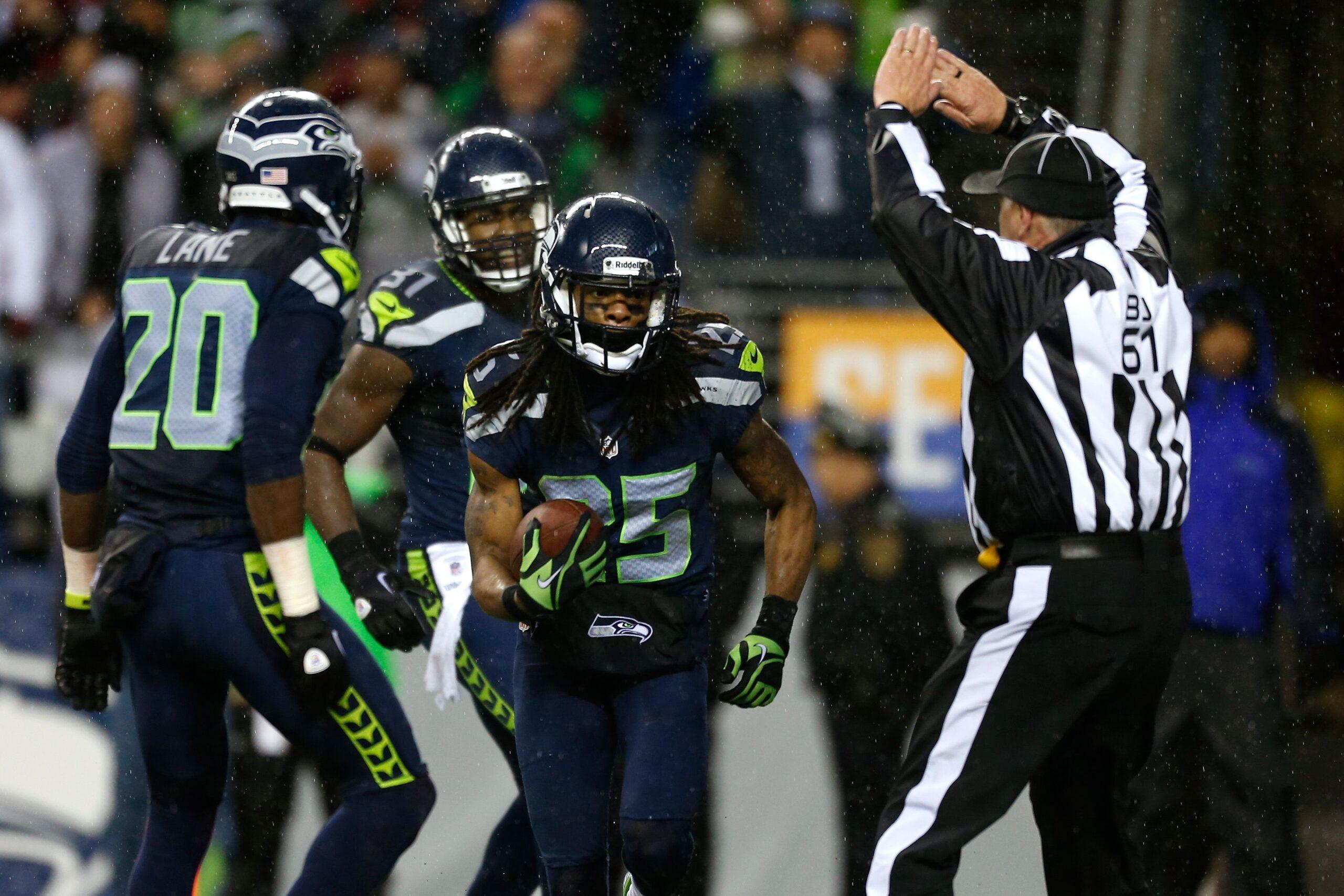
7. Richard Sherman
Year: 2011
Pick: Round 5, no. 154 overall
Pick AV: 3.2
Games started with drafting team: 99
AV with drafting team: 86
All-Pro selections: 5
To give you an idea of Sherman’s value, let’s take a look at the star-studded 2011 class. Ten (!) defensive players from that draft have been voted first-team All Pro at least once. The average draft position of the other nine was around 19th overall. That means that the gap in value between Sherman and the average All-Pro defender from the 2011 class equals out to about the 27th pick in the draft. So you could pick one of those guys at random—or you could have Richard Sherman and another first-round pick. Considering Sherman was already one of the most valuable players in football during his tenure with the Seahawks, I’m not sure that requires much deliberation.
6. Ben Roethlisberger
Year: 2004
Pick: Round 1, no. 11 overall
Pick AV: 26.2
Games started with drafting team: 216
AV with drafting team: 186
All-Pro selections: 0
There are several competing factors for and against Roethlisberger’s inclusion here, but let’s start with this one: He was the third quarterback taken in his own draft class. The difference between getting Roethlisberger at no. 11 and Eli Manning at no. 1 may not seem that significant, but the gap in draft capital comes out to the 48th overall pick. That’s huge! Roethlisberger’s Hall of Fame résumé includes two Super Bowl wins, but even that tidbit requires some untangling. The first title run of Roethlsiberger’s career came in 2005, when the Steelers were still a ground-and-pound offense. He barely averaged 200 passing yards during four playoff games that season. Roethlisberger shouldered a bigger load in 2008 en route to his second title, but it would be years before he became the true focal point of the Steelers offense. Roethlisberger has probably never been a top-three quarterback in the NFL, but he’s provided Pittsburgh with great QB play for nearly a decade and a half. And the Steelers paid a lower draft price than most teams for that stability.
5. Antonio Brown
Year: 2010
Pick: Round 6, no. 195 overall
Pick AV: 1.2
Games started with drafting team: 103
AV with drafting team: 102
All-Pro selections: 5
Brown’s tenure in Pittsburgh didn’t end well, but that doesn’t change what he accomplished during his six full seasons as a full-time starter. One telling number in this exercise is the difference between a players’ starts and his total AV. The closer those two figures are, the more value a player produced. Brown’s numbers are nearly identical, which is a playing-time-to-production ratio typically reserved for quarterbacks. His run from 2013 through 2018 is one of the most prolific stretches ever strung together. Among receivers drafted in the fourth round or later since 1970, Brown currently ranks in the top six in receptions, yards, and receiving touchdowns—despite starting at least 39 fewer games than anyone ahead of him. His career is unlike anything another late-round receiver has produced this century.
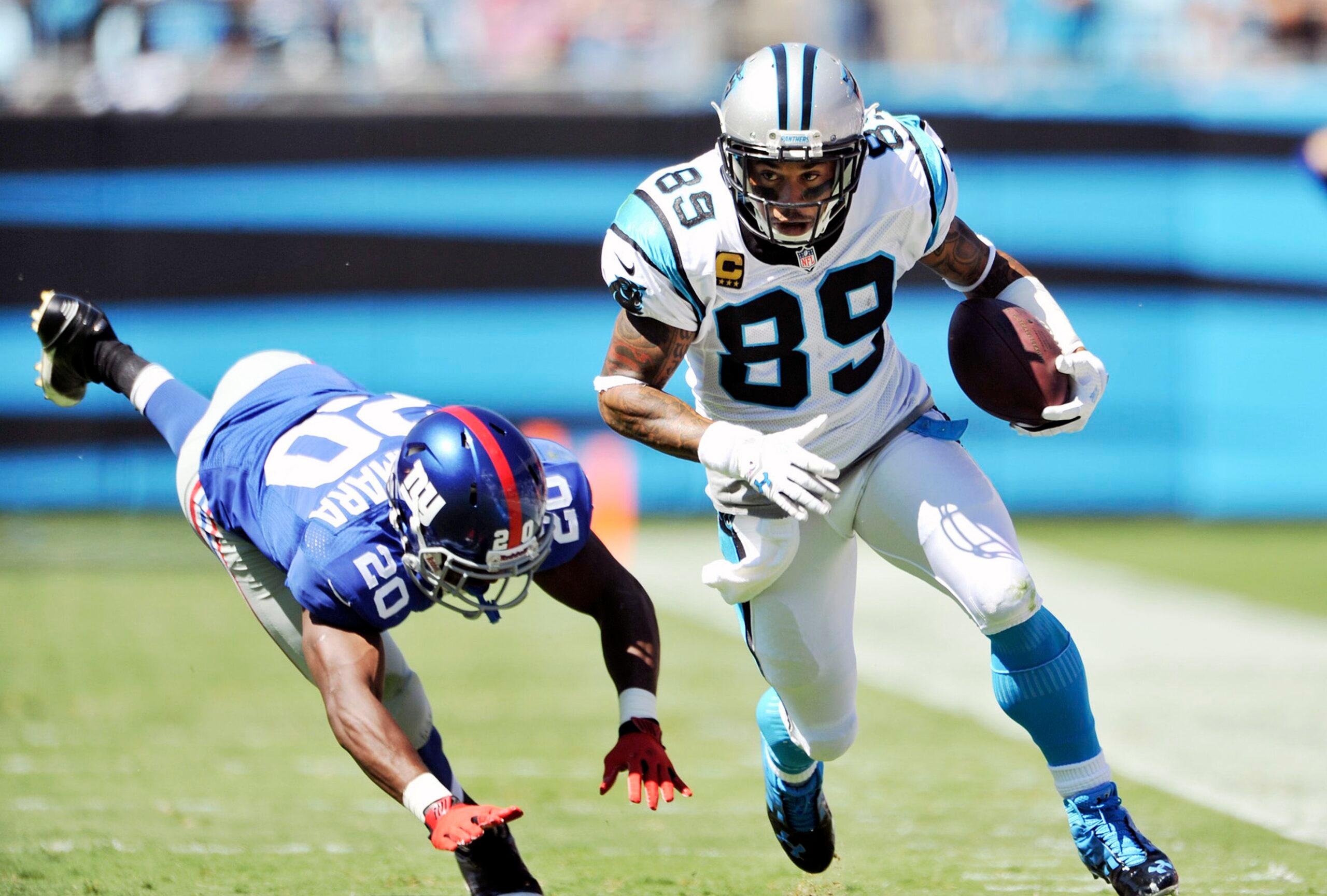
4. Steve Smith
Year: 2001
Pick: Round 3, no. 74 overall
Pick AV: 9.4
Games started with drafting team: 161
AV with drafting team: 120
All-Pro selections: 3
The peak of Smith’s career doesn’t quite stack up with most of the top 10, but the crux of the argument for him is that he was really good for a long time. Between 2003 and 2013, Smith failed to break the 1,000-yard mark only three times. The first was in 2004, when he missed 15 games with a broken leg. The second was in 2009, when Jake Delhomme’s career imploded. And the third was in 2010, when Jimmy Clausen led a historically anemic Panthers passing game. When Smith had even competent quarterback play, he was a pass-catching machine. Smith finished his Panthers career with seven seasons of at least 70 catches and 1,000 yards. The only players to match or top that mark since 2000 are Brandon Marshall (who bounced around between multiple teams); Anquan Boldin (who split his total across two teams); Derrick Mason (ditto); and the first-round trio of Reggie Wayne, Torry Holt, and Larry Fitzgerald. Like Smith, Fitzgerald put up historic numbers with one franchise for nearly two decades. But if you look at the draft value gap between Fitzgerald (taken third overall in 2003) and Smith, it’s equal to the 13th overall pick. For as good as Fitz has been, Smith and the pick wins that battle every time.
3. Aaron Rodgers
Year: 2005
Pick: Round 1, no. 24 overall
Pick AV: 19.9
Games started with drafting team: 174
AV with drafting team: 184
All-Pro selections: 3
The top three players on this list were never really up for debate, and that trio starts with Rodgers. Rodgers’s case isn’t very complicated. Green Bay found a two-time MVP and the most talented passer of his era with the 24th overall pick. The gap in draft value between Rodgers and Roethlisberger comes out to the 107th pick in the draft. And it’s not like Rodgers needed any extra help in that scenario. Quarterbacks with his talent are historically top-10—and often top-five—picks. By landing Rodgers at no. 24, the Packers got their second Hall of Fame quarterback in 15 years with a pick in the back half of the first round.
2. Russell Wilson
Year: 2012
Pick: Round 3, no. 75 overall
Pick AV: 9.3
Games started with drafting team: 128
AV with drafting team: 129
All-Pro selections: 1
If Wilson were to retire tomorrow, he’d still be the runner-up on this list. He and the guy ahead of him are unlike any quarterbacks in modern NFL history. Check out the list of QBs drafted in the third round or later since 1980. Nearly every other productive member of that group changed teams at least once before putting up big numbers. Wilson and Tom Brady are the only two “late-round” quarterbacks who turned into perennial superstars for the teams that drafted them. Since Joe Montana, no quarterback drafted in the third round or later has made the Hall of Fame. If Wilson continues on his current trajectory, he and Brady will be the first ones to do it.
1. Tom Brady
Year: 2000
Pick: Round 6, no. 199 overall
Pick AV: 1.1
Games started with drafting team: 283
AV with drafting team: 280
All-Pro selections: 5
Does this really need an explanation? Brady was a compensatory selection taken 33 picks into the sixth round. Three kickers and a punter were taken ahead of him. Since Brady in 2000, the other 19 players drafted 199th overall have 211 combined starts. Brady has 283—and six Super Bowl rings. The most accomplished quarterback of all time is also the greatest draft value of all time.
